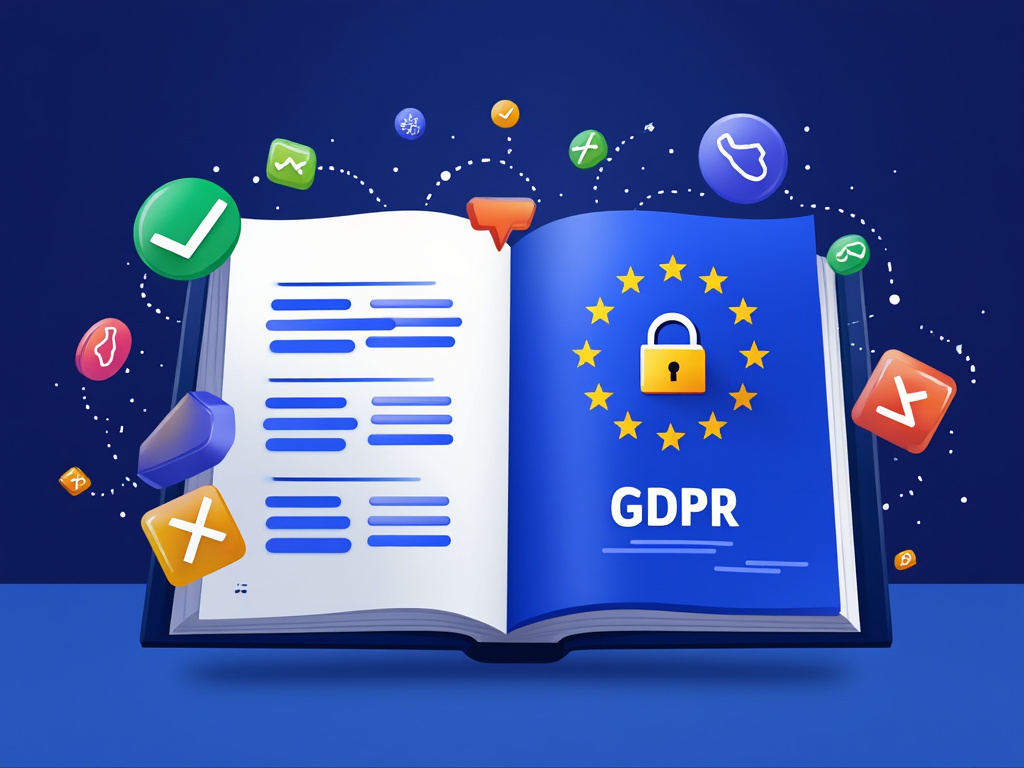GDPR Compliance: Your Ultimate Guide for Marketing Success

Understanding GDPR Compliance: Your Ultimate Guide for Marketing Success
In the ever-evolving landscape of digital marketing, the General Data Protection Regulation (GDPR) stands out as a cornerstone of consumer rights and data protection in the European Union. As e-store owners, navigating these waters is not just about avoiding hefty fines; it’s an opportunity to build trust with your customers and create a brand that values privacy. Let’s dive deeper into the essentials of GDPR compliance and how it can enhance your marketing strategies.
What is GDPR and Why Should You Care?
The GDPR, effective from May 2018, regulates how personal data is collected, processed, and stored. It provides EU citizens with more control over their personal information, which in turn compels businesses to adopt transparent and responsible data practices. Here’s why it matters to you:
– Trust Building: Respecting customer data fosters loyalty.
– Legal Compliance: Avoid potential fines that can reach up to 20 million euros or 4% of your annual global turnover.
– Market Expansion: A compliant business can tap into the vast European market.
Key Components of GDPR Compliance
To become GDPR compliant, you need to understand a few key components that revolve around your customer’s data:
- Consent: Ensure that you have clear and explicit consent from customers before collecting their data. This includes using checkboxes and clear language in forms.
- Transparency: Inform your customers about how their data will be used, stored, and processed through a comprehensive privacy policy.
- Data Minimization: Collect only the data you need. This not only complies with GDPR but also streamlines your operations.
- Access Rights: Customers must have easy access to their data, including the ability to download or delete it upon request.
- Breach Notification: In case of a data breach, you must notify the relevant authorities within 72 hours and inform affected customers promptly.
Implementing GDPR in Your E-Store
Being GDPR compliant doesn’t have to be an uphill battle. Here are practical steps you can take:
1. Review Your Data Collection Practices: Audit how you collect data through forms, subscriptions, and cookies. Ensure you’re collecting the right information ethically and legally.
2. Update Your Privacy Policy: Tailor your privacy policy to transparently communicate how you collect, use, and protect personal data. Ensure it’s easily accessible on your website.
3. Enhance Your Email Marketing: Use platforms like Incomaker to manage your marketing automation while ensuring compliance. Segment your email lists effectively to send relevant content to those who are consented and engaged.
4. Create a Data Processor Agreement (DPA): If you work with third-party vendors, ensure they understand and adhere to GDPR compliance with a well-crafted DPA.
5. Train Your Team: Conduct GDPR training sessions to ensure that everyone in your team understands the importance of data protection and how they can contribute.
Leveraging GDPR for Marketing Success
While GDPR compliance might seem cumbersome, embracing it can lead to genuine marketing success. Here’s how:
– Enhanced Customer Engagement: When customers know their data is safe, they are more likely to engage with your campaigns, leading to higher conversion rates.
– Improved Data Quality: Focusing on consent encourages valuable interactions. Quality over quantity becomes your new mantra in data collection.
– Brand Reputation: A reputation for respecting consumer privacy can differentiate your brand in a crowded marketplace.
– Targeted Marketing Campaigns: Utilizing consent-based data allows for more tailored marketing efforts, increasing the likelihood of customer retention.
Challenges and Misconceptions
As with any regulation, misconceptions abound regarding GDPR compliance. Here are a few common challenges and how to overcome them:
– Myth: GDPR only applies to businesses based in the EU.
Fact: If you’re processing data of EU citizens, you need to comply irrespective of where your e-store is located.
– Myth: GDPR compliance is a one-time effort.
Fact: It’s an ongoing process that requires regular reviews and updates to policies and practices.
– Myth: Only large companies need to worry about GDPR.
Fact: Every business, regardless of size, must adhere to GDPR if it deals with EU citizens’ data.
GDPR Compliance and Marketing
Navigating GDPR compliance may seem daunting, but the rewards of a transparent and trustworthy brand far outweigh the challenges. As you adapt to these regulations, remember that respecting your customers’ privacy not only protects your business but also enhances overall marketing effectiveness. Implementing robust compliance measures can transform your e-store into a model of trust and integrity, making it a leader in an increasingly privacy-conscious market. So, get ready to embrace this regulatory landscape and watch your e-store thrive!



